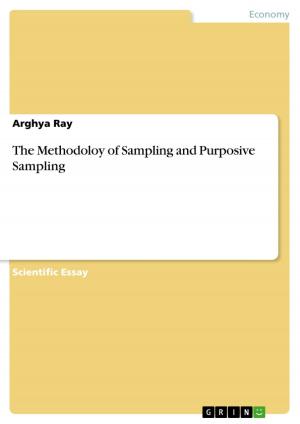How compatible are the normative commitments of Islam with the Universal Declaration of Human Rights?
| Author: | Julia Heise | ISBN: | 9783638362252 |
| Publisher: | GRIN Publishing | Publication: | April 2, 2005 |
| Imprint: | GRIN Publishing | Language: | English |
| Author: | Julia Heise |
| ISBN: | 9783638362252 |
| Publisher: | GRIN Publishing |
| Publication: | April 2, 2005 |
| Imprint: | GRIN Publishing |
| Language: | English |
Essay from the year 2005 in the subject Politics - International Politics - Topic: Public International Law and Human Rights, grade: 1,5, University of Edinburgh, 56 entries in the bibliography, language: English, abstract: During the last few decades, growing attention has been paid to the enforcement (and the prevention of the abuse) of fundamental human rights, mainly facilitated by the International Human Rights Regime. Moreover, human rights-issues are increasingly subject to a controversial international debate, especially in the light of continuous globalisation, events such as 9/11 and rising cross-cultural communication. One specific discussion-point concerns 'Islam and Human Rights', the crux of the matter being the compatibility of Islamic normative values with the Universal Declaration of Human Rights (UDHR). Every scholar who approaches this debate more profoundly automatically comes across with the Universalist/Cultural- Relativist-debate. These academics go a step further. They are concerned with the evaluation of the compatibility-analysis and discuss the validity and consequences of such an analysis.1 However, the following paper operates independently of the Universalist/Relativist debate. The aim is to explore the compatibility of the Islamic tradition with the Universal Declaration, and the author believes that the most appropriate approach is an objective comparison, without judging the result of the analysis in any way. 2 The first and second section sketch the basic characteristics of the UDHR and Islam. An understanding of both doctrines is a necessary tool for the purpose of this essay. The third part analyses the compatibility of both doctrines on two levels. The essay then outlines the diverse Muslim positions regarding human rights in Islam. This is essential to be able to draw a sound conclusion concerning the compatibility of Islam with the UDHR, in the last section. 1 Universalists maintain the validity of the UDHR-doctrine and often criticise the Islamic- or other traditions on grounds of their non-conformity with the International Bill of Human Rights. Cultural Relativists, on the other hand, argue that the doctrine of universal human rights is challenged by different moral claims derived from different cultural contexts. Compare Jones (2001:51-76), Brown (1999:103-127), Pollis (2000:9-30), Schmale (1993:3-27), Rüsen (1993:28-46), Donelly (1998: 1-23) and Huntington (1997). 2 Also, the term 'compatibility' does not imply a notion of superiority (of one over the other doctrine) in this context.
Essay from the year 2005 in the subject Politics - International Politics - Topic: Public International Law and Human Rights, grade: 1,5, University of Edinburgh, 56 entries in the bibliography, language: English, abstract: During the last few decades, growing attention has been paid to the enforcement (and the prevention of the abuse) of fundamental human rights, mainly facilitated by the International Human Rights Regime. Moreover, human rights-issues are increasingly subject to a controversial international debate, especially in the light of continuous globalisation, events such as 9/11 and rising cross-cultural communication. One specific discussion-point concerns 'Islam and Human Rights', the crux of the matter being the compatibility of Islamic normative values with the Universal Declaration of Human Rights (UDHR). Every scholar who approaches this debate more profoundly automatically comes across with the Universalist/Cultural- Relativist-debate. These academics go a step further. They are concerned with the evaluation of the compatibility-analysis and discuss the validity and consequences of such an analysis.1 However, the following paper operates independently of the Universalist/Relativist debate. The aim is to explore the compatibility of the Islamic tradition with the Universal Declaration, and the author believes that the most appropriate approach is an objective comparison, without judging the result of the analysis in any way. 2 The first and second section sketch the basic characteristics of the UDHR and Islam. An understanding of both doctrines is a necessary tool for the purpose of this essay. The third part analyses the compatibility of both doctrines on two levels. The essay then outlines the diverse Muslim positions regarding human rights in Islam. This is essential to be able to draw a sound conclusion concerning the compatibility of Islam with the UDHR, in the last section. 1 Universalists maintain the validity of the UDHR-doctrine and often criticise the Islamic- or other traditions on grounds of their non-conformity with the International Bill of Human Rights. Cultural Relativists, on the other hand, argue that the doctrine of universal human rights is challenged by different moral claims derived from different cultural contexts. Compare Jones (2001:51-76), Brown (1999:103-127), Pollis (2000:9-30), Schmale (1993:3-27), Rüsen (1993:28-46), Donelly (1998: 1-23) and Huntington (1997). 2 Also, the term 'compatibility' does not imply a notion of superiority (of one over the other doctrine) in this context.















